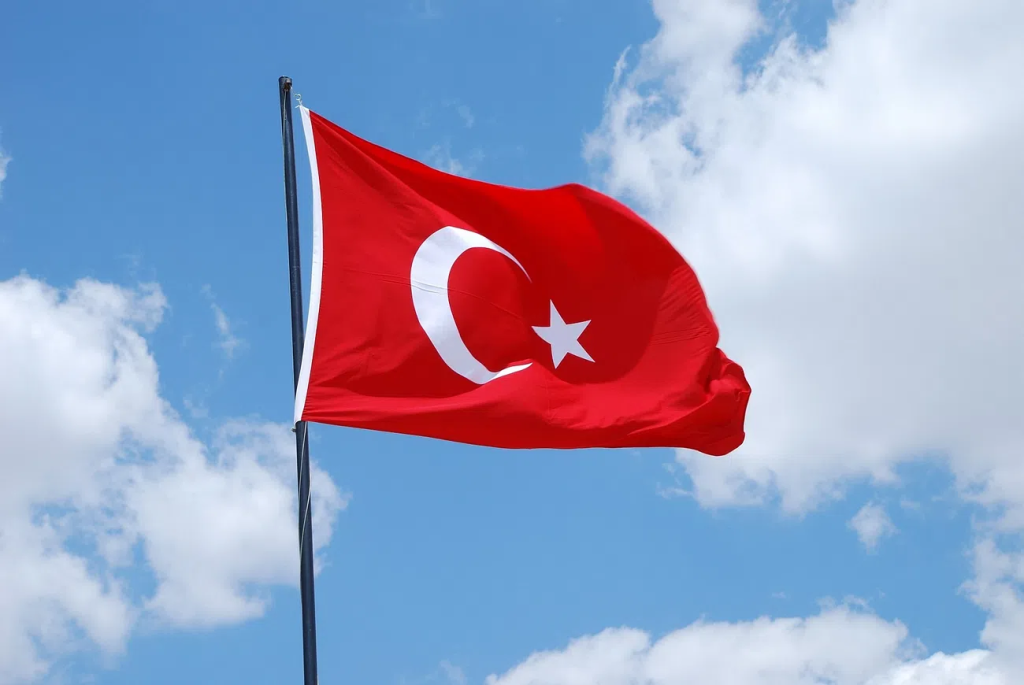Twitter blocks content in Turkey prior to presidential election
First posted July 27, 2023 8:30pm EDT
Last updated July 27, 2023 8:30pm EDT
All Associated Themes:
- Foreign Policy
- Social Media
External References
Erdoğan’s 20 years as Turkey’s strongman, BBC
Erdoğan clear favorite despite economic turmoil, Associated Press
Turkish election rigged by Erdoğan with media control, Reporters Without Borders
Musk’s Twitter complying with government demands more often, Rest of World=
Twitter not free speech haven, FIRE
Twitter criticized for restricting content before Turkish elections, CBS
Turkish court overrules Wikipedia block, The Guardian
Musk caved to pressure from Turkish government, Insider
Turkish election in 4 weeks: Does İnce ruin the opposition victory? Euractiv
Why Turkey’s president is strong election favorite despite economic turmoil, The Associated Press

Twitter blocked four accounts and restricted 409 tweets in Turkey prior to the country’s presidential elections. The platform claimed the bans were necessary to comply with court orders issued by the Turkish government and avoid a nationwide shutdown of services, but critics alleged that Twitter was complicit in helping an authoritarian government skew a high-stakes election.
Key Players
Recep Tayyip Erdoğan, the president of Turkey and leader of the Justice and Development Party (AKP), was first elected as president in 2014 after an 11-year tenure as prime minister. He has been criticized widely for targeting political dissidents, journalists, and activists in an effort to expand his executive powers.
Elon Musk, a South African-American entrepreneur and investor, is the CEO and owner of Twitter, an acquisition he completed in October 2022. He is also the founder and CEO of SpaceX, a space exploration enterprise, and Tesla, an electric vehicle company.
Muhammed Yakut and Cevheri Güven are prominent critics of Erdoğan whose Twitter accounts were restricted in the lead-up to Turkey’s presidential election. Yakut, a Kurdish businessperson, and Güven, an investigative journalist, both have hundreds of thousands of followers on Twitter.
Further Details
Erdoğan was in a vulnerable position heading into the 2023 Turkish presidential election.
Despite surviving years of protests over the nation’s democratic backsliding and a coup attempt by a military faction, Erdoğan faced renewed pressure domestically because of an ailing economy and accusations of a lackluster response to earthquakes that resulted in over 50,000 deaths in February 2023.
But while Erdoğan officially won the election, his political opponents claimed that Turkey’s consistent crackdowns on free press were a major obstacle to unseating him. Reporters Without Borders asserted that Erdoğan orchestrated widespread harassment campaigns against independent journalists. Notably, in October 2022, the AKP led the legislature to pass a law that criminalized “publicly [disseminating] false information about the country’s domestic and foreign security, public order and general health,” with punishments ranging from one to three years of imprisonment. The Council of Europe condemned it as an “intrusive” law that chilled Free Speech.
Shortly after acquiring Twitter, Musk had promised to transform the platform into a “common digital town square, where a wide range of beliefs can be debated in a healthy manner.” But since his takeover, Twitter has provoked controversies concerning censorship. Rest of World, a global technology news outlet, found that Twitter had fully complied with 83% of content takedown requests from governments and courts, with Turkey, Germany, and India initiatting the majority of such requests.
On May 13, 2023, one day before the election, Twitter released a statement in both English and Turkish that the company had “taken action to restrict access to some content in Turkey today.” CBS reported that Yakut’s and Güven’s accounts were among the ones blocked.
Two days later, Twitter clarified that it “was the only social media service not complying in full with existing court orders,” and that the Turkish government had issued “a final threat to throttle the service.” Twitter also pledged to continue objecting in court while noting that no legal action was possible before the election. The statement included photos of the court orders.
The impact of the content suspension on Turkey’s election results was unclear, but Erdoğan eventually won with 52.16% of the vote.
Outcome
Widespread criticism of Twitter’s bans
Backlash against Twitter centered around the contradiction between Musk’s self-proclaimed prioritization of Free Speech and his apparent granting of exceptions to foreign governments.
Jimmy Wales, the co-founder of Wikipedia, criticized Musk.
In 2017, Turkish courts ordered Wikipedia to censor an article on state-sponsored terrorism that associated Turkey with the Islamic State group and other terrorist organizations. But Wikipedia refused, and after more than two years the Turkish government lifted the ban when both the European Court of Human Rights and the Constitutional Court of Turkey, its highest court, ruled that the ban violated freedom of expression.
“What Wikipedia did: we stood strong for our principles and fought to the Supreme Court of Turkey and won. This is what it means to treat freedom of expression as a principle rather than a slogan,” Wales tweeted.
Some critics also questioned whether Musk’s business ties to Turkey influenced his decision to follow the country’s court orders, Insider reported. For instance, SpaceX sold multiple Falcon 9 rockets to Turkey to aid the country’s satellite program. Each rocket is estimated to cost $62 million.
Musk defends actions, cites necessity of keeping Twitter operational
Musk defended Twitter by citing the company’s transparency. “This is par for the course for all Internet companies – we are just going to be clear that it’s happening, unlike the others,” he tweeted. Musk also rebuked critics who challenged his commitment to free speech. In a reply to a since-deleted message by journalist Matthew Yglesias, Musk insulted him before asking “the choice is have Twitter throttled in its entirety or limit access to some tweets. Which one do you want?”